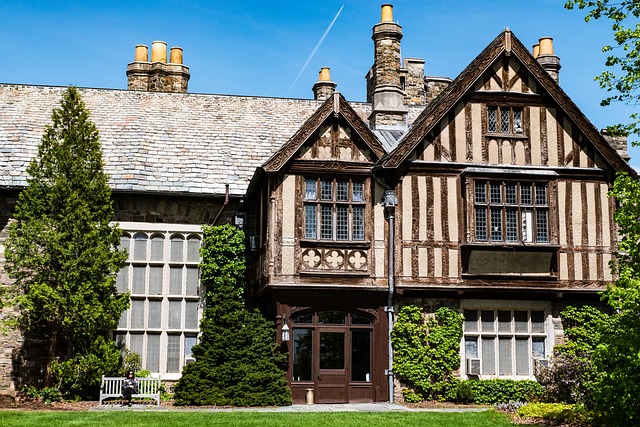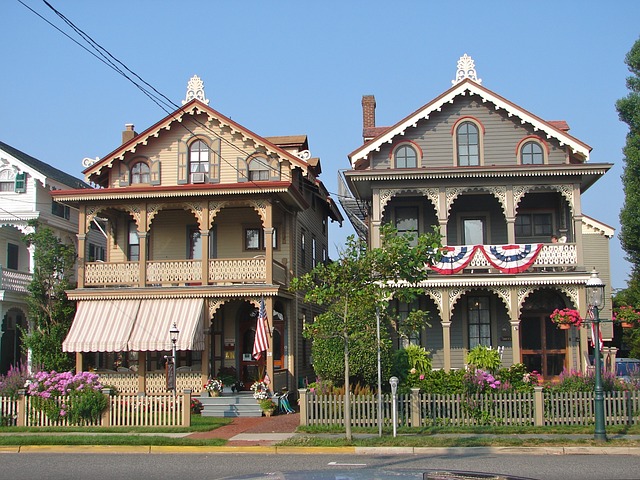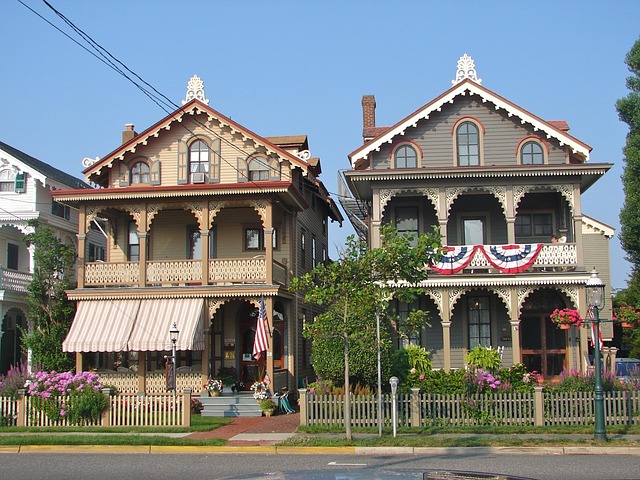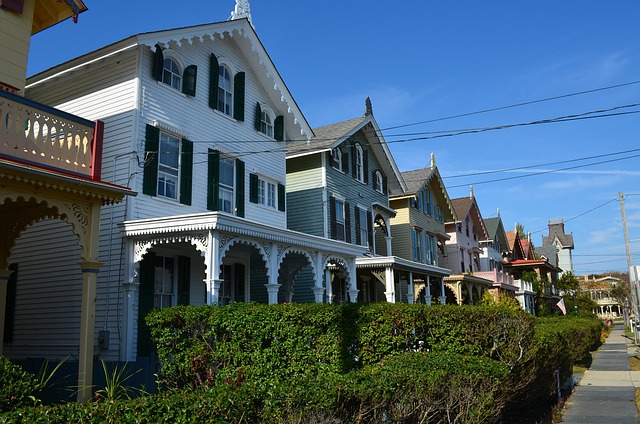The Prallsville Mills in Stockton, Hunterdon County, New Jersey, are a historically significant site offering a glimpse into the region's early industrial and cultural practices. Dating back to the late 1700s, these well-preserved mills—including gristmill, sawmill, and lime kiln—are listed on the National Register of Historic Places and provide visitors with an authentic experience of colonial-era milling operations. The site is a living museum where one can see original machinery in action during special events, offering a unique educational and engaging experience. Situated by the Delaware River, the mills are surrounded by a scenic landscape that complements their historical significance, making them a must-visit destination for those interested in Hunterdon County's rich history and cultural heritage. The mills have undergone recent restoration efforts to preserve this architectural gem, reflecting the county's dedication to maintaining its past while fostering community engagement and educational enrichment. As a cornerstone of the local economy, they continue to attract tourists and host events, ensuring their role in the region's narrative is both sustained and enlivened. This commitment to preservation and cultural activities makes the Prallsville Mills an integral part of Hunterdon County, New Jersey's identity.
Embark on a historical journey through Hunterdon County, New Jersey, as we explore the enduring legacy of Prallsville Mills in Stockton. This article delves into the mills’ rich tapestry of history, architectural significance, and the pivotal role they played in the area’s economic evolution. From restoration efforts to cultural influences, uncover how this landmark continues to define Hunterdon County’s heritage. Join us as we examine Prallsville Mills’ impact over centuries and the community’s ongoing commitment to preserving this vital piece of American history for future generations.
- Unveiling the Rich History of Prallsville Mills: A Historic Landmark in Hunterdon County, New Jersey
- The Architectural Significance and Restoration Efforts of Prallsville Mills in Stockton, NJ
- A Journey Through Time: Exploring the Cultural and Industrial Impact of Prallsville Mills on Hunterdon County
- The Role of Prallsville Mills in the Economic Development of Stockton, New Jersey Over the Centuries
- Preservation and Community Engagement: The Future of Prallsville Mills and Its Place in Hunterdon County's Heritage
Unveiling the Rich History of Prallsville Mills: A Historic Landmark in Hunterdon County, New Jersey

The Prallsville Mills in Stockton, a historic district nestled within Hunterdon County, New Jersey, stands as a testament to the region’s industrial past and cultural heritage. This complex of gristmill, sawmill, and lime kiln dates back to the 18th century, offering a unique glimpse into early American milling practices and the innovation of its era. The site’s significance is underscored by its inclusion on the National Register of Historic Places, reflecting the craftsmanship and resourcefulness of its builders and operators over time. Visitors to Prallsville Mills can explore the remnants of the industrial complex, including the original millstones and machinery, which continue to operate during special events, providing an immersive experience into Hunterdon County’s rich history. The surrounding area, with its pristine landscape and serene Delaware River views, adds to the allure of this historic site, making it a must-visit for history enthusiasts and tourists alike who wish to delve into the county’s storied past.
The Architectural Significance and Restoration Efforts of Prallsville Mills in Stockton, NJ

The Prallsville Mills in Stockton, NJ, stands as a remarkable testament to early American industrial innovation and architectural craftsmanship, situated within the historic Hunterdon County. This complex, dating back to the late 18th century, is one of the oldest functioning mills in the United States, offering a glimpse into the region’s rich past. The mills are distinguished by their graceful stone architecture and the way they harness natural waterpower, showcasing the harmony between human ingenuity and the environment. Over time, these mills have served various functions, from grain processing to housing a museum that preserves local history.
In recent years, restoration efforts have been pivotal in reviving this architectural treasure. The Hunterdon County Cultural & Heritage Commission, along with community volunteers and dedicated historians, have worked tirelessly to maintain the mills’ historical integrity while upgrading facilities to serve as a hub for cultural and educational activities. These restoration initiatives not only safeguard the structural stability of the site but also ensure that its rich history is accessible for future generations to appreciate. The Prallsville Mills, with its enduring presence along the Delaware River, continues to be a vibrant part of Hunterdon County’s narrative, reflecting both its industrial past and its ongoing commitment to preservation and community engagement.
A Journey Through Time: Exploring the Cultural and Industrial Impact of Prallsville Mills on Hunterdon County

The Role of Prallsville Mills in the Economic Development of Stockton, New Jersey Over the Centuries

The Prallsville Mills, a cornerstone in the heart of Stockton, New Jersey, have played an integral role in the economic tapestry of Hunterdon County over the centuries. Originally constructed by Jacob Prall in the early 18th century, these mills have stood as a testament to the region’s industrial heritage. They began as gristmills, providing essential grinding services for local farmers, which was vital for the agricultural community that thrived along the Delaware River. Over time, the mills adapted and expanded, incorporating various industries such as paper-making, which further stimulated the local economy and solidified Stockton’s position as a commercial hub within Hunterdon County.
Throughout its history, the Prallsville Mills have undergone significant transformations while retaining their central role in the economic landscape of Stockton. The mill complex has served as a catalyst for growth and innovation, adapting to shifts in industry and commerce that have characterized different eras. Today, it stands as a historic site, offering a glimpse into the past while also supporting contemporary economic activities through tourism and cultural events. These endeavors not only honor the rich history of Hunterdon County but also contribute to its ongoing development, showcasing the area’s resilience and adaptability in the face of changing times.
Preservation and Community Engagement: The Future of Prallsville Mills and Its Place in Hunterdon County's Heritage

The Prallsville Mills, nestled in Stockton, NJ, within the heart of Hunterdon County, stand as a testament to the region’s rich history and cultural heritage. This historic site is not merely an artifact of the past but a living repository of American industrial and community life. Preservation efforts for Prallsville Mills are centered around maintaining its integrity while fostering community engagement and educational programs that celebrate the mill’s significance in Hunterdon County’s legacy. These initiatives ensure that the mills remain a vibrant part of the local landscape, offering a hands-on experience with history for visitors and residents alike. The commitment to preserving this gem of Hunterdon County New Jersey involves meticulous restoration projects and interpretive exhibits that tell the stories of those who once worked in the mills, as well as the craftsmanship produced there. As part of the county’s heritage, Prallsville Mills plays a pivotal role in local identity and serves as a hub for cultural and educational activities, drawing together people from diverse backgrounds to appreciate and learn from this unique piece of Americana. The future of Prallsville Mills is intertwined with the community’s dedication to its preservation, ensuring that it continues to be an integral part of Hunterdon County’s narrative for generations to come.



